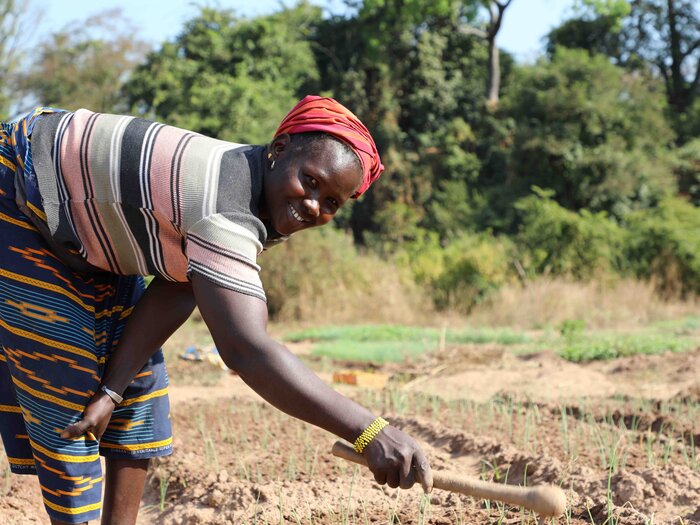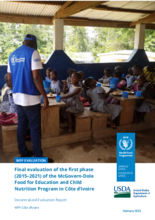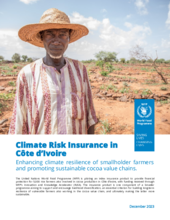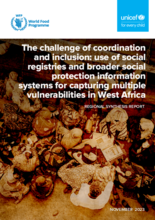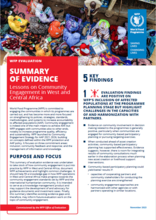Côte d'Ivoire
- 46%
- of people live below the poverty line of US$1.22 per day
- 30%
- stunting prevalence in north and central-west
- 29.4 million
- population
Political stability has paved the way for strong economic growth in Côte d'Ivoire over the past decade, with increased investment in basic social services and a reduction in poverty.
However, food insecurity, malnutrition and gender inequalities remain widespread, with 46 percent of people living below the poverty line and nearly 23 percent of children stunted (impaired growth due to malnutrition) nationwide.
Despite these challenges, the Government’s five-year National Development Plan aims to transform the country into a middle-income economy by 2025. It is designed to accelerate the development of people’s health, skills, experience and knowledge – known as a country’s human capital – and social well-being.
The World Food Programme is placing an increased focus on capacity building, to ensure that programmes can be owned by the Government and communities. Our activities encompass life-saving operations, resilience-building activities and institutional system strengthening. At the core of this approach is the sustainability of the national school meals programme, through food-systems strengthening and women’s empowerment.
What the World Food Programme is doing in Côte d'Ivoire
-
School meals
-
WFP provides nutritious school meals to over 145,000 children, including 6,000 school-aged refugee children in northern Côte d'Ivoire. The school meals programme involves an integrated package that includes the promotion of health and nutrition at school level, improved access to water and sanitation, literacy support for children with learning difficulties and support to women smallholder farmer groups.
-
Emergency response
-
In response to the refugee influx from Burkina Faso, WFP provides up to 14,000 asylum seekers with monthly cash assistance to cater for their immediate food needs. WFP also assists vulnerable households from host communities, providing cash transfers every three months. WFP monitoring has shown that the percentage of refugee households with acceptable food consumption increased from 42 percent to 61percent after 3 months of assistance. In addition, WFP supports emergency preparedness both at interagency and national levels, including through training in early warning, response, warehouse management and targeting.
-
Nutrition
-
WFP contributed to the government’s revision of the National Multisectoral Plan for Nutrition and its implementation. WFP led several studies that resulted in the development and approval of the national food fortification strategy.
-
Resilience building
-
WFP provides technical training in stock, warehouse and post-harvest management to smallholder farmers, as well as equipment and machinery. This increases agricultural production and productivity, reduces post-harvest losses in a sustainable manner and improves market access. WFP also implements integrated activities to reduce the impact of climate change, such as early warning and climate monitoring, climate insurance and promotion of smart agriculture practices.
-
Capacity strengthening
-
WFP works with the Ministry of Agriculture to monitor food security. WFP also partners with the Ministry of Health to provide training in areas including warehouse inventory and stock management, as well as emergency response. We work with the Directorate for Pharmaceutical Activities on supply chain data analytics for improved planning and decision-making.
In focus
Côte d'Ivoire news releases
Go to pagePartners and Donors
Find out more about the state of food security in Côte d'Ivoire
Visit the food security analysis pageOperations in Côte d'Ivoire
Contacts
Office
CCIA-BAD, 4th floor 01 BP 1747 Abidjan 01, Côte d’Ivoire
Abidjan Plateau
Côte d’Ivoire

